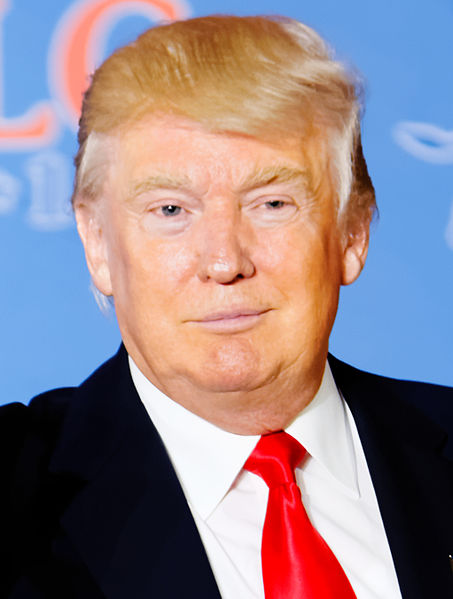We’re now mere days away from the most unconventional presidency in living memory, with all its bravado, spite, Twitterphilia and border walls. Some of you might be thinking the Mexican side of that wall is looking more appealing by the minute. And Canada’s just lovely this time of decade.
You may like piña coladas and getting caught in the rain, but this is no time to plan your escape. So before you write out that sign for your desk saying, ‘Out for a bit. Back in 2021’, consider this: from turmoil and uncertainty often arise innovative Christian responses.
Monk-ing Around
On Sunday, my pastor, Paul Wallis, reminded me of the situation facing western civilisation in the 5th and 6th centuries. The Roman Empire had already split into two halves, with much of the power and influence shifting to the banks of the Bosporus. Now, the last vestiges of Roman dominance in Europe disintegrated due to a complex combination of economic and political mismanagement, social unrest and the growing might of Germanic tribes like the Goths and Vandals.
 Many Christians had long felt uneasy about the church’s alliance with Rome and the resulting influx of nominal ‘believers’, who craved the prestige that went with joining the ‘it’ religion of the empire. As centralised power structures decayed, a number of these Christians opted for life under a different structure – in monastic communities.
Many Christians had long felt uneasy about the church’s alliance with Rome and the resulting influx of nominal ‘believers’, who craved the prestige that went with joining the ‘it’ religion of the empire. As centralised power structures decayed, a number of these Christians opted for life under a different structure – in monastic communities.
In Protestant circles, the word ‘monastery’ often conjures up a host of negative impressions. We view monks as isolationists, who cut themselves off from society in every respect and became a law unto themselves (a kind of Christian Qumran community). Deep in the forests, locked in their cloisters, away from prying eyes and free from restraint, they engaged in all manner of debauches, violations and unholy seductions!
But such characterisations (especially of early monasticism) are grossly unfair and owe more to popular imagination than to actual history. Under the direction of men like Benedict of Nursia, monastic communities sought not to isolate themselves, but to create a healthy separation from the highly secularised and politicised Roman church (the Roman civil religion), which they regarded as corrupt. Though not without their own problems, early Medieval monasteries did much to benefit their society. First and foremost, monks dedicated themselves to regular prayer – an action we ritually undervalue. Monasteries also provided hospitality to travellers and charity to the poor. Beyond this, they treated the sick and researched, created and distributed medicines to anyone in need. Furthermore, monks copied, preserved and stored scripture and great works of antiquity and monasteries became great centres of education.* Finally (and crucially), monks brewed beer.

Medieval Lessons for the Present Moment
Trump’s presidency may not prove to be an earth-shattering cataclysm on a par with the collapse of Rome (though admittedly, initial signs are less than encouraging). That said, a heavy uncertainty now weighs upon the nation and the world. I’d suggest that the life of early monastic communities gives us examples of how to respond to that uncertainty.
A Degree of Separation: No, I’m not advocating that we all become monks (I have sensitive skin that would be chafed by a belt of rope). But it’s all too clear that Christians (particularly, American Christians) have become hopelessly entangled in an increasingly corrupted political system, which easily rivals the civil religion of Rome’s dying days. Distancing ourselves from unquestioning allegiance to one political party or another could allow a better perspective from which to thoughtfully assess and critique official policies.
Prayer: As I said, it’s tragically undervalued! Pray for the nation. Pray for the president. But pray first for the Kingdom of God, bringing reconciliation and healing, as well as justice for those on the fringes of our society.
Hospitality, Charity and Education: A welcoming spirit toward people of different faiths or ethnic backgrounds seems to have departed our shores. Along with it has gone much of our concern for the economic and social welfare of those doing it tough. Is it any wonder that these groups feel vulnerable? But we can re-ignite what we’ve allowed to dwindle. Feed the hungry. Assist the poor. Care for the sick. Welcome immigrants and refugees. And educate our children to do the same! That, says James, is a non-negotiable part of ‘true religion’.
Preserving Scripture: Despite the fact that the incoming president describes the Bible as his favourite book, his comments suggest he’s never really read it. Even worse, vocal support from several Christian leaders for a textbook narcissist, with a vindictive and prejudicial mindset, shows that these leaders are themselves more and more willing to lock the Jewish prophets and Jesus safely away in the cupboard under the stairs (with all their ‘hope for the poor’ and ‘Sermons on the Mount’). Sure, the world doesn’t need us to produce codices of scripture with illuminated margins, but it does need us to illuminate our leaders and regularly remind them of what scripture actually says.
Making Beer: Let’s face it, there will be days over the next four years where we’ll need something a lot stronger than water.
It isn’t time for seclusion, but it is time for some fresh expressions of Christian social engagement. St. Benedict would likely agree.
*An excellent book on many of these aspects, and specifically the monastic life of Ireland owing to Padraig (St. Patrick), is How the Irish Saved Civilisation by Thomas Cahill.
Image Credits:
- Donald Trump (Photo by Michael Vadon – Public Domain – Wikimedia Commons)
- Limoges Plaque of St. Benedict (Public Domain – Wikimedia Commons)
- Mug of Beer (Public Domain – Wikimedia Commons)


Leave a Reply